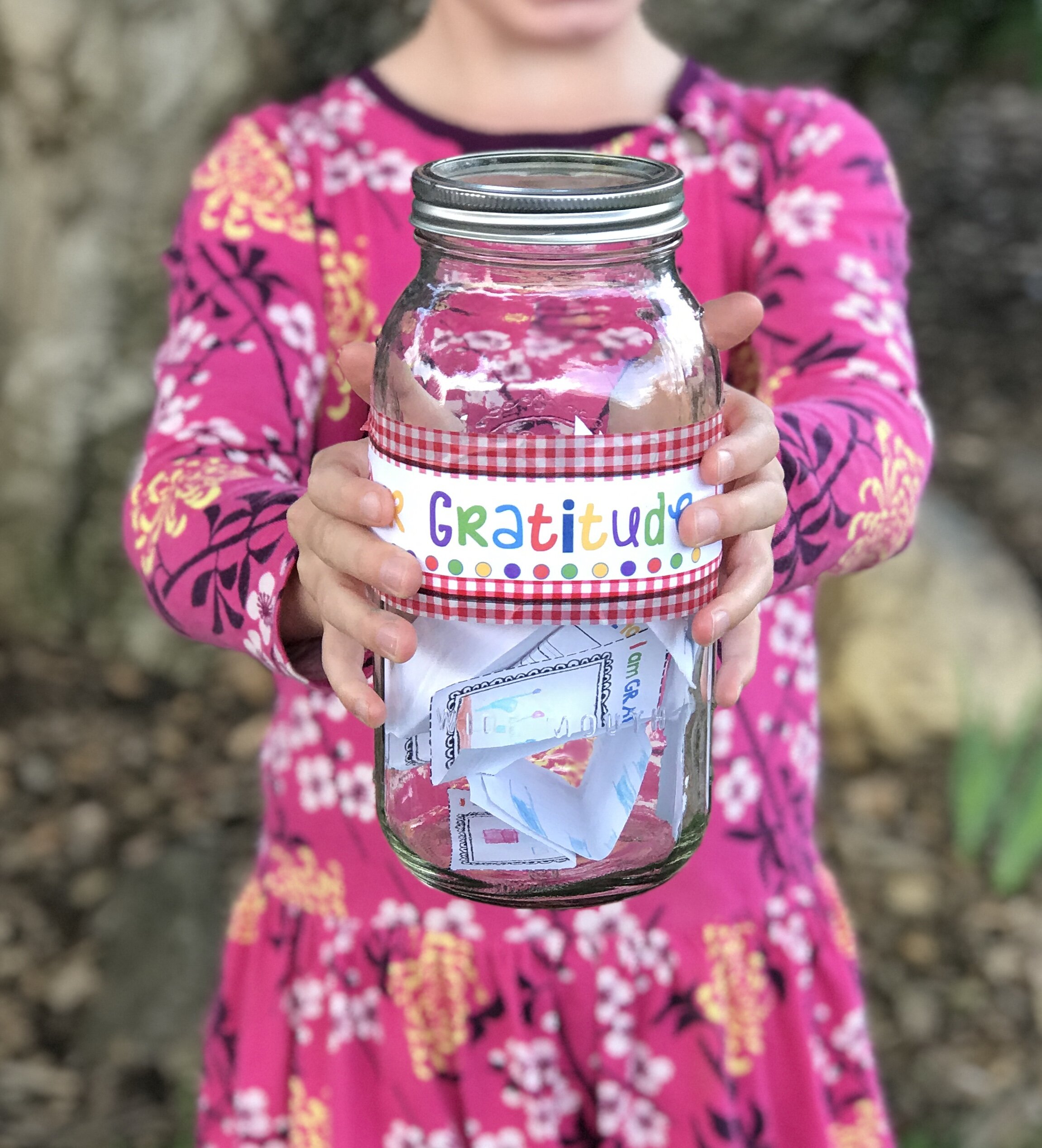Thoughts on Gratitude Practices for Kids
I am on a journey to find the space that exists between honoring my childrens’ raw and valid feelings and also encouraging gratitude. I know that this space exists but it often feels like a moving target. If I am being honest, some of my attempts at incorporating gratitude practices with our kids have been oversimplified at best and patronizing at worst.
It’s a complicated balance to encourage gratitude while also acknowledging ALL feelings and not placing a higher value on some than others. I don’t want my children to get the idea that their “happy” or “grateful” feelings are welcome in our home but their “bad” or “angry” feelings are not. All of them is welcome and loved.
And yet, I do deeply desire for them to have appreciative and aware hearts. Gratitude practices feel too important to skip over just because they are complicated. Even if my attempts are messy and imperfect (which I have exactly zero doubt that they are at times) I long to keep trying and keep showing up. I pray that I’m planting seeds and when I fail, I hope I am failing forward.
In this post I’m going to share five ways to encourage gratitude in your children and as a family. Hopefully some of them will be helpful for you!
1.) Make it FUN! Gratitude practices don’t need to be slow or boring. They can be made into games. One way to do this is to take a list of six topics and write it down. For example: 1.) Foods I’m thankful for 2.) Books I love 3.) A fun memory I’m grateful for, etc. Take turns rolling a die and stating something that comes to mind from the corresponding category of the number that you roll.
2.) Create a community way of sharing gratitude. One example of this would be a gratitude jar. You can find prompts and labels to print here for free. I love using washi tape around the border to make it look cute! When something comes to mind throughout the day that you feel thankful for, you can add it to your jar. Create a special time of the week to read through these as a family.
3.) Discuss gratitude using growth mindset language. Like anything else that we have to practice, gratitude is like a muscle. The more we use it, the stronger our gratitude muscle becomes. I’ve created a social emotional learning unit about this idea. You can try several of the activities here for free. If growth mindset language is a new idea, you can read more about that here.
Here is a photo of some of the activities included in the social emotional learning unit on gratitude. My hope is that it encourages kids to embrace the practice of gratitude right alongside other social learning tools (such as growth mindset and acknowledging all emotions as valuable) to have a holistic view of gratitude.
4,) Keep a gratitude journal. Gratitude journaling is something that I’ve begun to do as an adult. It’s been such a helpful tool in my life! Gratitude truly does hold the power to transform our perspective. Keeping an ongoing list of things in my life that I’m thankful for is a powerful experience. I encourage my kids to notice and record the details of what they’re thankful for. Pausing and noticing details is something that children are often better at than we are.
You can grab my FREE preschool gratitude journal by clicking here. I hope it’s a helpful tool for the young children in your life to build the habit of recording and remembering things they are grateful for.
5.) Normalize the idea that you can experience multiple feelings at the same time. For example, I will often share stories with my kids about how I was feeling grateful for something in my life but I was also feeling jealous or upset about something that I didn’t have. This normalizes for them that practicing gratitude is not the same thing as suppressing or ignoring other feelings they may be having. This is so important for them (and us!) to understand!
When my twins were young I experienced significant postpartum anxiety. I didn’t know at the time that’s what it was but I shamed myself tremendously for “just not being grateful enough.” I truly DID love being a mama and I was VERY aware (after years of infertility and a complex pregnancy) of just how grateful I “should” be for these babies. And I was! But gratitude and anxiety are not mutually exclusive. I always want my kids to know that they can experience many feelings together and there is nothing wrong with that.
I hope that these tools are helpful for you as you too seek that magical space that exists when we pursue gratitude with honesty, fun and realistic expectations! May we be patient and kind with ourselves and with our little people on this journey!







